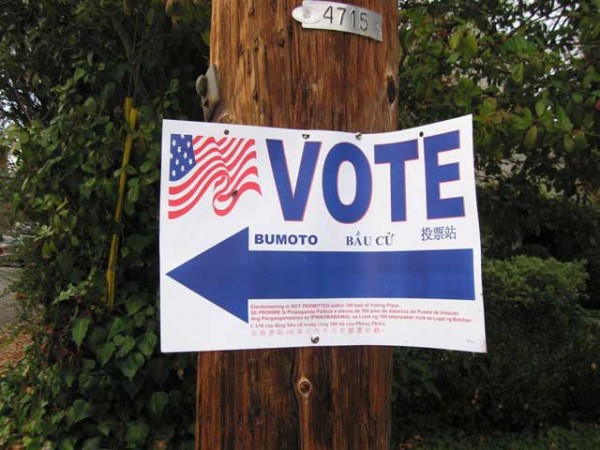Same Party Runoffs Slated for California General Election


California’s political landscape has undergone some major changes in 2012 due to redistricting and the introduction of the state’s first top two open primary. New district lines created by the independent California Citizens Redistricting Commission, managed to not only change the makeup of the electorate in some areas, it also created a scenario where several incumbents are locked in tough campaigns to keep their seat after being drawn into the same district. The rules that went into effect under the new “top two” system made it so that like-minded candidates, in an effort to make it through to November, had to engage early on with voters that they might have otherwise ignored. The combined effects of the two will be felt even more strongly this November as voters head to the ballot boxes.
Some of June’s toughest campaign battles will be carrying through to November, and the general election will be anything but typical this year. Several races throughout the state won’t feature the traditional Democrat vs. Republican lineup, but rather a truer reflection of voter preference in the district. Voters in several areas will be choosing between candidates from the same party or a match-up between a No Party Preference candidate against a candidate from one of the major two parties.
As far as same party contests go, there will be 28 in total this fall- including Congressional, State Senate, and State Assembly races. It will be essential for these candidates to reach a broader spectrum of voters in order to cinch victory, and that includes those from the opposing party. Candidates and consultants that are accustomed to running in tough races where independent voters often cast the deciding vote, now have a significant advantage. The trick is in messaging across party lines without alienating loyalists, or worse yet, sending them to the opposition.
Here’s a rundown of same party races this November:
Congressional Races:
CD 8- Paul Cook and Gregg Imus (Republican)
CD 15- Fortney “Pete” Stark* and Eric Swalwell (Democrat)
CD 30- Howard Berman* and Brad Sherman* (Democrat)
CD 31- Gary Miller* and Bob Dutton (Republican)
CD 35- Joe Baca* and Gloria Negrete McLeod (Democrat)
CD 40- Lucille Royball-Allard* and David Sanchez (Democrat)
CD 43- Maxine Waters* and Bob Flores (Democrat)
CD 44- Janice Hahn* and Laura Richardson* (Democrat)
State Senate Races:
SD 13- Jerry Hill and Sally Lieber (Democrat)
SD 15- Jim Beall and Joe Coto (Democrat)
State Assembly Races:
AD 1- Brian Dahle and Rick Bosetti (Republican)
AD 2- Wesley Chesbro* and Tom Lynch (Democrat)
AD 5- Frank Bigelow and Rico Oller (Republican)
AD 6- Beth Gaines* and Andy Pugno (Republican)
AD 10- Michael Allen* and Marc Levine (Democrat)
AD 18- Rob Bonta and Abel Guillen (Democrat)
AD 19- Phil Ting and Michael Breyer (Democrat)
AD 20- Bill Quirk and Jennifer Ong (Democrat)
AD 23- Jim Patterson and Bob Whalen (Republican)
AD 39- Raul Bocanegra and Richard Alarcon (Democrat)
AD 47- Joe Baca, Jr. and Cheryl Brown (Democrat)
AD 50- Betsy Butler* and Richard Bloom (Democrat)
AD 51- Jimmy Gomez and Luis Lopez (Democrat)
AD 59- Reggie Jones-Sawyer and Rodney Robinson (Democrat)
AD 62- Steven Bradford* and Mervin Evans (Democrat)
AD 67- Phil Paule and Melissa Melendez (Republican)
AD 72- Troy Edgar and Travis Allen (Republican)
AD 76- Rocky Chavez and Sherry Hodges (Republican)
*Denotes Incumbent





